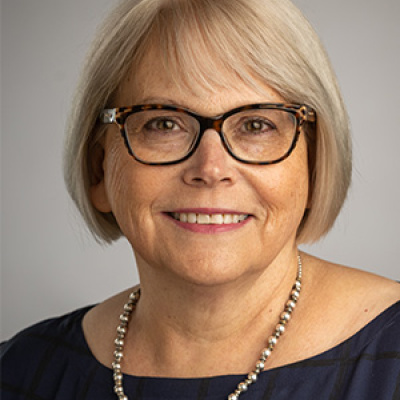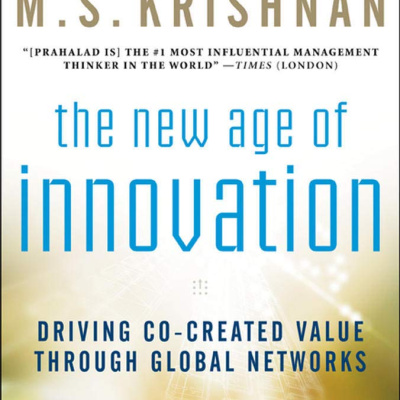Explore the faculty research, thought leadership, and groundbreaking philosophies that established Michigan Ross as one of the world’s top business schools.
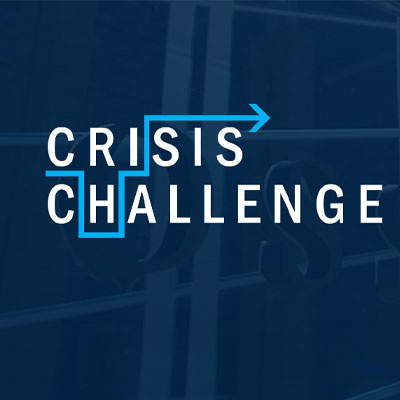
Currently organized by the Sanger Leadership Center, the Leadership Crisis Challenge partly came about based on Sue Ashford’s vision as the then head of the Ross Leadership Initiative and the enthusiasm of students wanting to create more venues to discuss complex and problematic business issues, such as the role of business in addressing society's most difficult problems and how businesses and other leaders might think about tensions between financial and environmental goals. Additionally, there was an interest in understanding how students, as future leaders, might best think about issues of corporate social responsibility. The LCC was intended to address those student interests by putting students in groups of four and asking them to exercise their courage, judgment, and integrity in response to a complex crisis situation and under strict time pressure. In the crisis challenge, students are confronted with a complex case for which there is no right answer or winning position – there are just tradeoffs. Built into the case are some of the most vexing questions of the day, including: What does a company “owe” the community in which it does business? Should the natural environment be sacrificed for shareholder wealth? Can companies admit wrongs in today’s aggressive legal climate? With the input of previous participants, the Net Impact club, and members of the faculty, a new case is prepared every year and overseen and judged by Michigan Ross community members, business leaders, and alums.
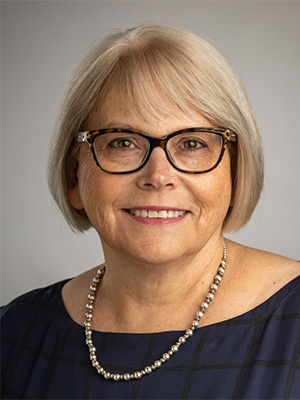
”Bifurcation of the Owner and Operator Analysis" was published by Professor Lynda Oswald in 1994. Her research was cited and quoted extensively by the U.S. Supreme Court in its unanimous decision in United States v. Bestfoods (1998) in clarifying parent corporations' direct and indirect liability for their subsidiaries’ actions in the context of CERCLA liability and hazardous waste cleanup. The liability of a parent corporation for the acts of the subsidiary is a complex issue that permeates all areas of corporate law and business relationships, and is not confined to the environmental context found in Bestfoods. Oswald’s research has since informed the decisions of over 55 additional courts -- federal trial and appellate courts as well as state appellate and supreme courts -- in business law contexts as varied as environmental liability, whistle-blowing under the Sarbanes-Oxley Act, the Racketeering-Influenced Corrupt Practices Act (RICO), employment discrimination, medical malpractice, negligence, bankruptcy, and real estate transactions.
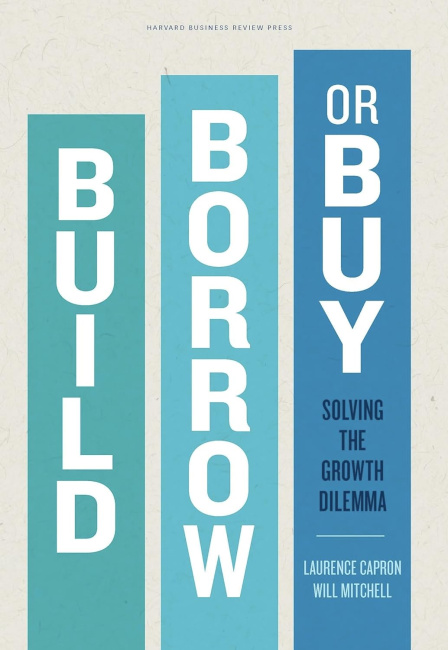
In the book Build, Borrow, or Buy: Solving the Growth Dilemma the late Professor Will Mitchell and his co-author Laurence Capron developed a groundbreaking framework showing how firms can dynamically manage their resource portfolios and choose an appropriate growth strategy in turbulent market environments fraught with institutional, technological, and economic challenges. This comprehensive framework integrates the capability-based perspective with the principles of transaction cost economics. The intellectual origins of the capability-based perspective are deeply rooted in the foundational work in the strategy field carried out at the University of Michigan around 1980. Mitchell's foundational framework has not only shaped the research agendas of scholars interested in central questions in corporate strategy but also influenced practitioners who are faced with the perpetual strategic conundrum of how best to grow their firms.

In 1991, Professor Priscilla Rodgers designed an assessment to help the Michigan Business School evaluate MBA students' written communication skills, which was used for course placement. When the GMAT added an Analytical Writing Assessment in 1994, Rodgers conducted research that showed the AWA did not accurately assess management communication and that the assessment criteria and methodology used at the business school were far more meaningful. Rodgers and her team developed five six-point scales that quantified the competencies that MBA students need to be effective writers. In 2017, the business communication area at Michigan Ross moved to an assessment of MBA students' management communication, which included speaking as well as writing, and allowed students to choose a non-credit path toward satisfying the communication requirement. Andrea Morrow, lecturer and director of writing programs, developed a framework based on Rodgers' work called the Ross Management Communication Competencies Framework. As part of the new assessment process, full-time, global, and online MBA students learn about management communication and are assessed using Morrow's framework. If their results show they are low in any of the five competency areas, they can opt to complete targeted work on Canvas, or they can opt to take a business communication class. No other business school has a program like this.

In 2004, Ross finance Professors M.P. Narayanan and Nejat Seyhun's research revealed that thousands of corporate executives were systematically backdating their executive option awards to pocket hundreds of thousands of dollars in extra compensation illegally. The authors’ research proved difficult to publish, however. Referees and editors refused publication because the authors were “accusing the captains of American industry of outright fraud." Eventually, following dozens of press appearances between 2004 and 2006, the attitudes changed. Soon afterward, the floodgates of civil and criminal lawsuits opened, following a Wall Street Journal story truly accusing the top executives of outright fraud. Finally, one editor relented in 2008 and the research was published as is. Subsequent investigations indeed found that many executives, in collusion with the board of directors as well as the company human resources executives, went so far as to make up fake meeting dates and fake meeting minutes and fraudulently altered corporate documents to perpetuate their fraud. Finally, the U.S. Securities and Exchange Commission changed the option award rules to end option-award backdating. Narayanan and Seyhun's research underlines the importance of good corporate governance policies in containing executives’ worst instincts and stopping them from preying on their own shareholders.

In 1998, Professor David Hirshleifer of the Michigan Business School, and two co-authors, published a paper titled "Investor Psychology and Security Market Under- and Overreactions." This paper has been widely recognized as the first explanation of the seemingly contradictory behavior in asset prices (under- and overreactions to different news) based on two well documented behavioral biases. The biases outlined in the paper are overconfidence (regarding the precision of one's private information) and biased self-attribution. The former leads to well documented evidence of long-term overreaction (price reversals), while the latter causes underreaction (momentum) in the medium term. This paper was the first widely recognized paper in finance based on departures from rational behavior and provided a compelling explanation for seemingly anomalous behavior in asset prices.

From 1990-1993, Michigan Ross housed the Minority Summer Institute with support from the Association to Advance Collegiate Schools of Business and the Graduate Management Admission Council. MSI was designed to increase the number of minority faculty in business and management education.
Each year, 30 Black, Hispanic, and Native American college students were selected to participate in MSI's six-week program. While at Ross, the students were involved in a series of classes, informational sessions, and presentations that provided a first-hand introduction to doctoral studies and the life and work of business professors.
According to Dave Wilson, former president of GMAC, "When one thinks about changing the world, the MSI initiative must be seen as a resounding success." Following the last offering of MSI, the KPMG Foundation initiated the PhD Project, which has continued the mission of MSI. The PhD Project reports that the number of underrepresented business professors in the United States has risen from 294 in 1994 to more than 1,700 today.
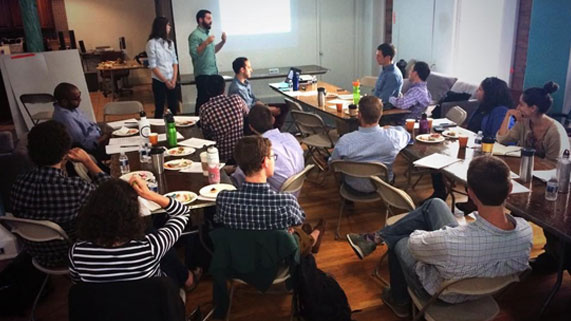
Four student-run venture funds are currently operating at Michigan Ross, more than any other business school. Collectively, these funds manage a portfolio worth more than $10 million. These funds help students learn about investing early-stage capital by making real deals with real companies and real money. The concept of student-run venture funds has been adopted by universities around the world.

The inception of the Journal of Public Policy and Marketing dates back to 1982 when it was founded by Tom Kinnear, a prominent faculty member from the Michigan Business School. Its initial name was Journal of Marketing and Public Policy. However, due to concerns raised by the American Marketing Association about potential confusion with the Journal of Marketing, it officially adopted its current name in 1983. The primary motivation behind the journal's creation was the growing interest among marketing academics in public policy during that era. During the 1970s and early 1980s, there was a growing interest in issues concerning the intersection of public policy and marketing. This interest encompassed various aspects, including advocacy for children's rights, as well as concerns related to other vulnerable groups such as the elderly, ethnic communities, and those with low income; the environmental impact of consumption and the emergence of what is now termed the "green consumer"; the adoption of energy-efficient practices by consumers following significant increases in gasoline, electric, and natural gas prices; evolving product liability doctrines that were becoming more lenient in terms of protective measures; food labeling and nutritional aspects; new consumer protection laws and measures. It is noteworthy that many of these trends are still relevant today, albeit with some shifts in emphasis, such as the increased focus on climate change.
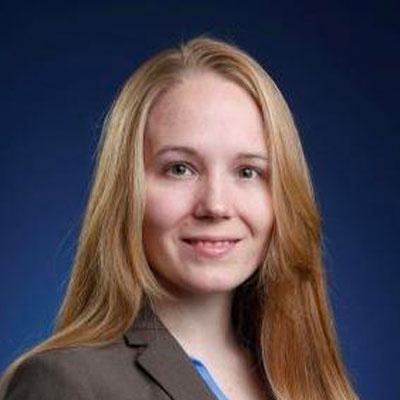
In her research published in the American Economic Review, the Review of Economics and Statistics, the Journal of Human Resources, Health Affairs, and other outlets, Professor Sarah Miller has used quasi-experimental methods to evaluate whether receiving improved access to health care in utero, in early childhood, and throughout childhood improves outcomes in adulthood. Miller and her co-authors have found that children who have received eligibility for health insurance through the Medicaid program have improved outcomes on a number of dimensions, both in terms of health and economic outcomes. Additionally, they found that the children of those children who had better access to healthcare in childhood were healthier at birth. This suggests a cycle in which investing in children's health today can have multigenerational benefits that allow the government to fully recoup the cost of its initial investment in the form of higher tax payments and lower spending on welfare programs. Miller's research has been discussed in numerous high-profile news outlets and has strongly impacted how academics and policymakers view investments in children. Furthermore, her papers have been cited nearly 500 times.

Management and Organizations professors Sue Ashford and Jane Dutton invented the concept of "issue selling," arguing that most middle managers don’t simply wait for the organization’s strategy to come down from on high but also actively try to influence what that strategy might be. These active middle managers recognize that organizations have limited attentional capacity, and they try to influence what issues get on the organization’s agenda and gain the attention of top decision-makers for issues such as the need to be more ecologically sensitive, the experiences of gender mistreatment and other social issues. In other words, whereas the literature to that point had construed middle managers as passive recipients, these scholars gave them agency and engaged in several studies to better understand how they use that agency to affect bottom-up change. The impact of this idea can be seen in both the popularity of the advice given to middle managers derived from it and in its anticipation of the larger literature on social movements. Social movements were first studied outside of organizations in society, but scholars later proposed that such movements could also occur within organizations, as in issue selling.
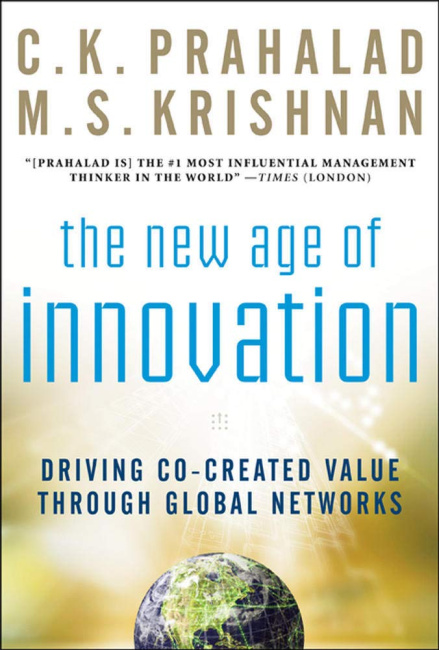
From 2000 to 2005, Professors C.K. Prahalad and M.S. Krishnan co-authored several papers on concepts related to how the emergence of digital technologies was transforming business models. From 2005 to 2008, they co-authored the book New Age of Innovation, which introduced the concept of N=1;R=G business model framework. The basic argument was that given the new capabilities emerging from digital technologies, the structure of business models was in the midst of a transformation across industries. They claimed that business models will shift from mass production of products or services to businesses co-creating personalized experiences for one customer at a time. They called this N=1 business model, i.e., businesses will operate on a sample size (N) of one. They argued that to orchestrate this personalized experience for one customer at a time, businesses will not own all resources but will connect with resource partners across the globe (Resources=Global or R=G), and these partners could be big organizations, small businesses, entrepreneurs, or even individuals. They called this business model N=1;R=G. They argued that digital technology was at the center of enabling these capabilities, and no industry will be immune to this change. They presented more than 80 examples in the book. The rest of the book was on the capabilities companies needed to build inside their organizations to compete as an N=1 business. Their primary thesis identified the significant role of software in orchestrating the personalized N=1 experience in an ecosystem of partners and the criticality of the right capabilities in the information architecture and social architecture of companies to thrive in this competition of N=1;R=G ecosystem business models.
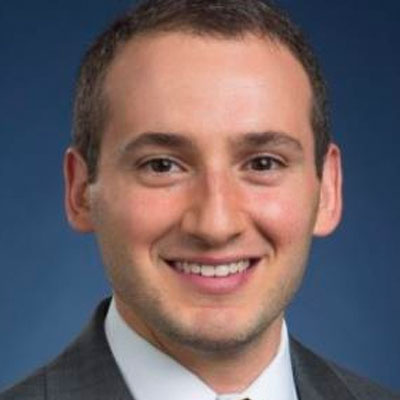
Building on his experience as an attorney at the Federal Reserve, the 2020-22 research of Assistant Professor Jeremy Kress has identified critical weaknesses in bank merger oversight and proposed strategies to reinvigorate bank merger enforcement. Kress' work has shown that lax bank merger oversight has harmed consumers, businesses, and the broader financial system. His research has demonstrated that the prevailing approach to bank merger regulation has increased the cost and reduced the availability of consumer credit, inflated the fees that banks charge for basic financial services, limited small business credit availability, and threatened financial stability. Kress' research has pushed bank merger reform onto the policy agenda in Washington, D.C. by serving as a blueprint for legislation introduced by Senator Elizabeth Warren and inspiring an executive order on bank mergers by President Joe Biden. The Department of Justice also invited Kress to lead a joint initiative with the federal banking agencies to rewrite their bank merger policies.

The research of Assistant Professor Eric Zou began with the observation that regulatory monitoring of pollution is often spatially sparse, temporally intermittent, or even nonexistent in developing-country settings. In a pair of papers titled "Unwatched Pollution: The Effect of Intermittent Monitoring on Air Quality" and "What's Missing in Environmental (Self-)Monitoring: Evidence from Strategic Shutdown of Pollution Monitors," Zou and his co-authors studied the strategic interaction between pollution monitoring and air quality.
These two papers demonstrate that intermittency in regulatory monitoring causally affects pollution outcomes and vice versa -- high pollution can induce selective monitoring. The evidence highlights a general principle-agent challenge of environmental federalism: local agencies are in charge of self-monitoring and enforcing federal environmental standards.
At the same time, these local agencies bear the regulatory penalties if their own data suggest that violations occurred. In a third paper titled "From Fog to Smog: The Value of Pollution Information," Zou and his co-authors found that pollution information disclosure triggered a dramatic change in public awareness of pollution issues, which in turn translated to increased avoidance behavior among members of the public and improved health.
This paper is among the first to document social, behavioral, and health changes when a highly polluted country without publicly available pollution information transitions to a new regime that makes it possible to openly discuss pollution issues and to find and use pollution information in real time.

Originally launched by Michigan Ross Professor David Brophy and now organized and run by the Zell Lurie Institute for Entrepreneurial Studies, the Midwest Growth Capital Symposium began as an opportunity to showcase innovative Michigan ventures seeking funding and connect them with venture capitalists, angel investors, industry stakeholders, and leaders from across the nation.
Today, the Symposium provides a platform for pre-selected Midwest companies to present their business ideas and investment opportunities. These companies span various sectors, such as life sciences, healthcare, technology, food and agriculture, and energy. First held in 1980, the Symposium is the longest-running university-based venture fair of its kind, has gained recognition, and attracts attendees from across the country.

In 1999, former Michigan Ross finance faculty member Josh Coval co-authored a paper that is among the top 50 most-cited papers in finance. The paper shows one of the most intriguing patterns in individual behavior. The strong bias in favor of domestic securities is a well-documented characteristic of international investment portfolios, yet this paper shows that the preference for investing close to home also applies to portfolios of domestic stocks. Specifically, U.S. investment managers strongly prefer locally headquartered firms, particularly small, highly leveraged firms that produce nontraded goods. These results suggest that asymmetric information between local and non-local investors may drive the preference for geographically proximate investments, and the relation between investment proximity and firm size and leverage may shed light on several well-documented asset pricing anomalies.






